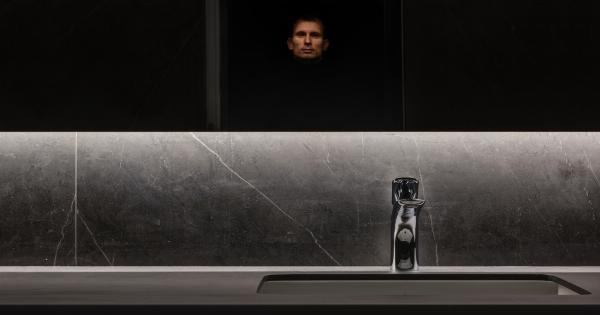Nocturia is a common condition characterized by the need to wake up multiple times during the night to urinate.
It can have a significant impact on a person’s quality of sleep, leading to daytime fatigue, reduced productivity, and decreased overall well-being. Nepturia, a subtype of nocturia, refers specifically to the excessive production of urine during the night. In this article, we will take a deep dive into the science behind nepturia, exploring its causes, symptoms, diagnosis, and treatment options.
The Importance of Understanding Nepturia
Nepturia has a profound impact on the lives of those who experience it. The constant need to wake up and visit the bathroom disrupts the normal sleep pattern, preventing individuals from getting a good night’s rest.
This leads to daytime sleepiness, decreased concentration, and impaired cognitive function. Over time, the chronic lack of quality sleep caused by nepturia can result in mood disturbances, increased risk of accidents, and a lower quality of life.
Causes of Nepturia
Several factors can contribute to the development of nepturia. One major cause is an increase in nighttime urine production. Normally, the body produces less urine during the night, allowing for uninterrupted sleep.
However, in individuals with nepturia, the kidneys continue to produce urine at higher-than-normal rates. This excessive urine production can be influenced by various factors, including:.
- Inadequate fluid regulation
- Fluid redistribution
- Bladder overactivity
- Hormonal imbalances
- Diuretic medications
- Medical conditions, such as diabetes and kidney disorders
Understanding the underlying cause of nepturia is crucial in guiding appropriate treatment options.
Symptoms
The primary symptom of nepturia is the need to wake up multiple times during the night to urinate. Individuals may also experience increased urinary frequency overall and may have to urinate urgently or experience discomfort when holding urine.
The disrupted sleep pattern caused by nepturia can lead to other symptoms, including daytime fatigue, reduced concentration, and decreased overall well-being.
Diagnosing Nepturia
Diagnosing nepturia involves a thorough medical evaluation, including a detailed history, physical examination, and laboratory tests.
During the assessment, healthcare professionals will inquire about the frequency and severity of nighttime urination episodes, as well as any associated symptoms. They may also ask about fluid intake and any medications or medical conditions that could be contributing to nepturia.
Laboratory tests may include a urine analysis, which can help identify any underlying urinary tract infections or abnormalities. Blood tests may also be conducted to assess kidney function and hormone levels.
In some cases, additional tests, such as bladder scans or urodynamic studies, may be recommended to evaluate bladder function and rule out other conditions contributing to nepturia.
Treatment Options
The treatment of nepturia depends on the underlying cause and the severity of the condition. Here are a few common approaches:.
Lifestyle Modifications
Simple lifestyle changes can often help manage nepturia. These may include:.
- Limiting fluid intake in the evening
- Avoiding caffeine and alcohol
- Emptying the bladder before bedtime
- Elevating the legs during the day to discourage fluid retention
Medications
In some cases, medications may be prescribed to help reduce nighttime urine production or control bladder function. Diuretics may be adjusted or discontinued if they are found to be contributing to nepturia.
Medications that relax the bladder or decrease bladder contractions may also be considered.
Treat Underlying Conditions
If an underlying medical condition, such as diabetes or a urinary tract infection, is contributing to nepturia, treating that condition may alleviate the symptoms.
Controlling blood sugar levels in diabetes or treating infections with appropriate antibiotics can help improve nepturia.
Medical Devices and Interventions
In some cases, medical devices or interventions may be recommended for the management of nepturia. For example, a bladder training program can help regulate bladder function and decrease nighttime urination.
In more severe cases, electrical stimulation or surgical interventions may be considered.
Managing Nepturia for Better Sleep
Living with nepturia can be challenging, but effective management strategies can help improve sleep quality and reduce its impact on daily life.
Working closely with healthcare professionals to identify the underlying cause and determine appropriate treatment options is essential. Additionally, adopting healthy sleep habits, such as maintaining a consistent sleep schedule, creating a restful sleep environment, and practicing relaxation techniques, can contribute to better sleep for individuals with nepturia.
Conclusion
Nepturia, a subtype of nocturia, is characterized by excessive urine production during the night. This disruptive condition can significantly impact sleep quality and overall well-being.
Understanding the causes of nepturia, recognizing its symptoms, and seeking appropriate medical evaluation and treatment are essential for managing the condition effectively. By implementing lifestyle modifications, considering medications and therapies, and addressing underlying medical conditions, individuals with nepturia can regain control over their sleep patterns and improve their overall quality of life.




























